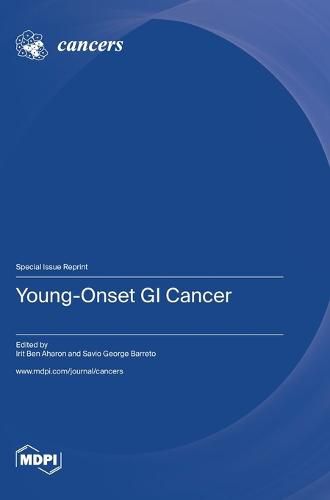Readings Newsletter
Become a Readings Member to make your shopping experience even easier.
Sign in or sign up for free!
You’re not far away from qualifying for FREE standard shipping within Australia
You’ve qualified for FREE standard shipping within Australia
The cart is loading…






This title is printed to order. This book may have been self-published. If so, we cannot guarantee the quality of the content. In the main most books will have gone through the editing process however some may not. We therefore suggest that you be aware of this before ordering this book. If in doubt check either the author or publisher’s details as we are unable to accept any returns unless they are faulty. Please contact us if you have any questions.
In the last decade, the incidence of cancer in young patients has increased in several cancer types according to the US Surveillance, Epidemiology and End Result (SEER) data and other worldwide registries. Recently, Sung and colleagues published an extensive pooled analysis from the US in Lancet Public Health, which revealed a dramatic increase in cancer incidence among younger adults (aged 25-49 years), mainly in "obesity-related" cancers, most of which occur in the gastrointestinal (GI) tract. Several studies over the past decade have indicated a significant increase in colorectal cancer incidence among young adults below the age of 50 years. Current evidence suggests that the majority of early-onset GI cancers are sporadic and harbor no familial etiology, indicating the potentially significant role of environmental and behavioral factors in their pathogenesis. Furthermore, the gut microbiome has been proposed to play a key role in CRC carcinogenesis.
The scope of this Special Issue of Cancers is to highlight perspectives regarding biology, etiology, late-term toxicities and quality of life which are unique and relevant to young-onset GI cancer cases.
$9.00 standard shipping within Australia
FREE standard shipping within Australia for orders over $100.00
Express & International shipping calculated at checkout
This title is printed to order. This book may have been self-published. If so, we cannot guarantee the quality of the content. In the main most books will have gone through the editing process however some may not. We therefore suggest that you be aware of this before ordering this book. If in doubt check either the author or publisher’s details as we are unable to accept any returns unless they are faulty. Please contact us if you have any questions.
In the last decade, the incidence of cancer in young patients has increased in several cancer types according to the US Surveillance, Epidemiology and End Result (SEER) data and other worldwide registries. Recently, Sung and colleagues published an extensive pooled analysis from the US in Lancet Public Health, which revealed a dramatic increase in cancer incidence among younger adults (aged 25-49 years), mainly in "obesity-related" cancers, most of which occur in the gastrointestinal (GI) tract. Several studies over the past decade have indicated a significant increase in colorectal cancer incidence among young adults below the age of 50 years. Current evidence suggests that the majority of early-onset GI cancers are sporadic and harbor no familial etiology, indicating the potentially significant role of environmental and behavioral factors in their pathogenesis. Furthermore, the gut microbiome has been proposed to play a key role in CRC carcinogenesis.
The scope of this Special Issue of Cancers is to highlight perspectives regarding biology, etiology, late-term toxicities and quality of life which are unique and relevant to young-onset GI cancer cases.